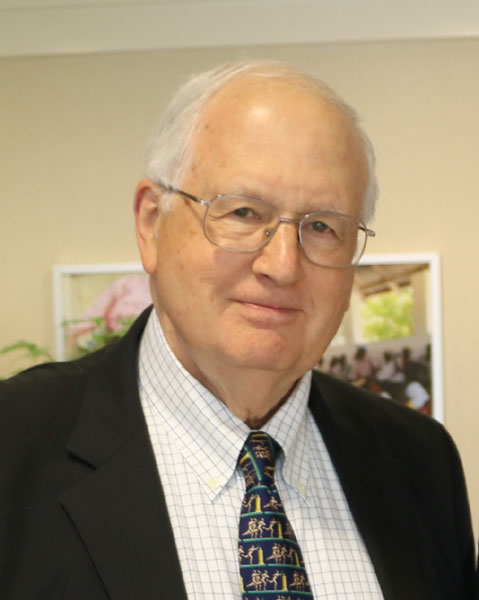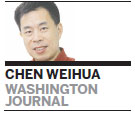 |
|
Former US Ambassador to China Stapleton Roy talks to the Chinese press on Tuesday in Washington. Chen Weihua/China Daily |
 In Stapleton Roy's view, issues such as cybersecurity, the South China Sea and the recent stock market shocks in China that have spilled over to the US and other countries should be on the agenda.
In Stapleton Roy's view, issues such as cybersecurity, the South China Sea and the recent stock market shocks in China that have spilled over to the US and other countries should be on the agenda.
But he suggested that many other important issues that will be addressed constructively by the two leaders have not got nearly enough attention. He was mostly referring to the news media, which have excessively focused on cyberhacking and the South China Sea while ignoring many other important issues.
He cited the example of last November's summit in Beijing when the two sides reached breakthroughs on climate change and military confidence-building, saying nobody was anticipating such agreements.
Cui Tiankai, Chinese ambassador to the US, told the press on Sept 5 that Xi's visit will be a success and produce fruitful results. He said it will be a "pleasant surprise when made public".
While noting the increasing rivalry between the two countries, Roy said the mechanisms for discussing issues from the top down are the better than they've ever been.
"When I was ambassador to China, I was lucky if I could get a cabinet minister to come to have a discussion, and there were no presidential exchanges between China and the United States during the four years when I was in Beijng," Roy said on Tuesday, after moderating a talk on Malaysia's and Singapore's views of the US rebalance-to-Asia strategy.
Roy, who was born in China in 1935 to missionary parents, served as the US ambassador there from 1991 to 1995 when the relationship was in bad shape.
"Now these types of meetings are taking place on a regular basis, multiple times a year in many cases," he said of the summits. "And I think that's a very important development, because if you cannot communicate, you can't solve problems."
Describing the US-China relationship as a difficult one, Roy, now a distinguished scholar at the Kissinger Institute on China and the United States at the Wilson Center, said having regular summits between the two leaders is a crucial aspect of managing rivalries and differences, along with the enormous areas of cooperation.
Unlike some who pointed to the sour mood of the relationship ahead of Xi's upcoming visit, Roy noted that there is never the same mood going into any summit because of the changing international situation and the shifting attitudes affected by immediate problems.
"I don't believe the mood going into this summit is incompatible with having a constructive outcome," he said.
He said it was the same in the case of the Sunnylands informal summit in California in June 2013, and there was a lot of uncertainty about the relationship before last November's summit in Beijing.
"That turned out to be a productive summit," Roy said. "So I don't think one should attach too much importance to the mood in terms of what the outcome may be."
Cybersecurity was a major issue ahead of the Sunnylands summit, but the revelations made by former National Security Agency (NSA) contractor Edward Snowden of the aggressive, wide-ranging US surveillance around the globe, including on China, came as a huge embarrassment for the US government.
Roy has been a critic of the US government response to the Asian Infrastructure Investment Bank (AIIB) initiated by China. "I think you want to avoid situations that initiatives by one country seem to be opposed by the other country in a kneejerk-reaction type of way," he said.
The United States had tried to persuade countries such as South Korea, Australia and the United Kingdom not to join the AIIB, a warning that was surprisingly snubbed by the US security allies.
Roy said it was best for China and the US to have some interactions either before or immediately afterward to clarify the implications for the two countries.
"I think that is an area that needs to be explored further," said Roy, citing the old days when the US would send top officials to China to brief Chinese officials on meetings between US and then-Soviet leaders.
"So I think we can do better in these areas, but I don't think we are doing badly that I am pessimistic going into this summit," said Roy, also a Soviet specialist who served in Moscow during the height of the Cold War.
Writing in the Huffington Post on Tuesday, Henry Rosemont Jr, a Confucius scholar and a professor at St. Mary's College of Maryland, criticized what he called the "intemperate" comments by US presidential candidates, namely Scott Walker, Marco Rubio and Donald Trump, on Xi's visit.
"(These comments) have provided evidence that they are ill-suited to lead the US through the numerous problems and pitfalls confronting the shrinking global village the world is rapidly becoming," he wrote.
chenweihua@chinadailyusa.com